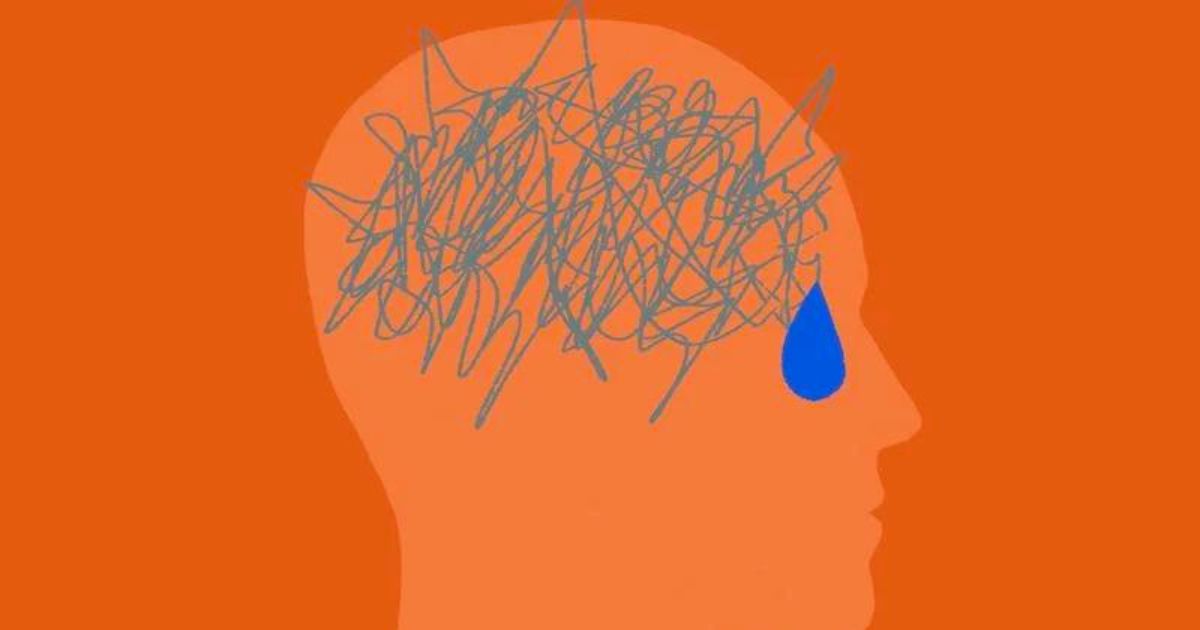In today’s fast-paced world, stress is a common companion for many individuals. The indicators of chronic stress can manifest in various forms, from everyday jitters to acute crises.
However, chronic stress, which can linger and potentially pave the way for serious health issues, is a distinct and concerning phenomenon. According to the American Psychological Association, chronic stress can be “debilitating and overwhelming.”
Chronic stress is characterized by its long-term nature and often arises from unrelenting feelings of despair, hopelessness, or powerlessness. These emotions can be rooted in factors such as poverty, family dysfunction, a sense of helplessness, or traumatic early childhood experiences.
Chronic stress can also develop from persistent acute stressors, such as the aftermath of a divorce or receiving a life-altering health diagnosis.
The Indicators Of Chronic Stress And Its Impact
What makes chronic stress particularly alarming is its far-reaching impact on health. It serves as a significant risk factor for a range of serious conditions, including heart disease, obesity, diabetes, depression, cognitive impairment, inflammatory disorders, and autoimmune diseases.
This relentless stressor can elevate blood pressure, disrupt digestive processes, and trigger debilitating headaches. Moreover, it has been linked to an increased risk of stroke and age-related diseases, including cognitive decline.
A study published in the journal Nature even suggests a direct connection between chronic stress and digestive problems, with “chemical cues in the brain” communicating with gut nerve cells and leading to inflammation.
Beyond its physical toll, chronic stress also wreaks havoc on the immune system, rendering it less effective in warding off illness.
This impairment makes individuals more vulnerable to various diseases, further underscoring the importance of recognizing and addressing chronic stress.
The consequences of chronic stress extend well beyond the individual level; they impact families, workplaces, and communities at large.
It is a societal issue that requires collective attention and action. To combat chronic stress effectively, it is essential to recognize its signs and take proactive steps to mitigate its effects.
Indicators of Chronic Stress:
- Emotional Turmoil: Individuals experiencing chronic stress often grapple with persistent feelings of sadness, anxiety, or irritability. They may also experience mood swings and a sense of helplessness.
- Physical Symptoms: Chronic stress can manifest in various physical symptoms, including headaches, digestive problems, muscle tension, and sleep disturbances. These symptoms can become chronic themselves if the stress is left unchecked.
- Cognitive Decline: Prolonged stress can impair cognitive function, leading to difficulties with memory, concentration, and decision-making.
- Behavioral Changes: Individuals under chronic stress may adopt unhealthy coping mechanisms such as overeating, substance abuse, or withdrawal from social activities.
- Weakened Immune System: Chronic stress weakens the immune system, making individuals more susceptible to illnesses ranging from the common cold to more severe conditions.
- Increased Risk of Chronic Diseases: Heart disease, obesity, diabetes, and autoimmune disorders are just a few of the chronic conditions associated with chronic stress. The constant state of heightened stress hormones can have a detrimental impact on overall health.
Ways To Handle Chronic Stress:
- Recognize the Signs: The first step in addressing chronic stress is acknowledging its presence. Pay attention to both physical and emotional symptoms, and seek support when needed.
- Seek Professional Help: Consulting a mental health professional can provide valuable insights and coping strategies for managing chronic stress.
- Lifestyle Changes: Adopting a healthy lifestyle can significantly reduce chronic stress. Regular exercise, a balanced diet, adequate sleep, and relaxation techniques like meditation or deep breathing can all be beneficial.
- Social Support: Maintaining strong social connections with friends and family can provide emotional support during challenging times.
- Time Management: Prioritize tasks and set realistic goals to avoid feeling overwhelmed by daily responsibilities.
- Limit Stressors: Identify and address sources of chronic stress in your life. This may involve making difficult decisions, such as seeking a new job or professional assistance in managing personal challenges.
In conclusion, chronic stress is a pervasive and insidious threat to both individual and public health. Recognizing its signs and taking proactive steps to manage and reduce chronic stress is vital for personal well-being and the overall health of society.
By prioritizing mental health and adopting healthy lifestyle practices, we can collectively work towards reducing the burden of chronic stress and its associated health risks.



























